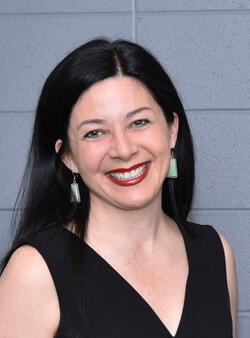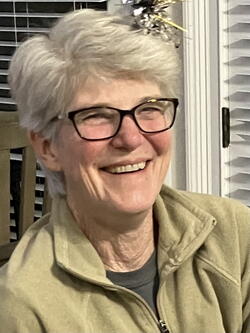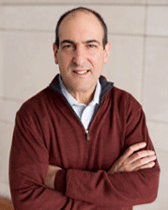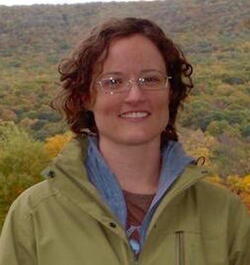
Stories That Wrong and Stories That Repair
Stories are as important as they are ubiquitous, depicting everything from the origin of the universe to the driving force behind an isolated act by a single individual. But stories do not just depict what has actually occurred—they can also exert tremendous power over what does or even can occur. How the unfolding of events is presented in a narrative, for instance, or the layers of a person’s character are sketched, can have monumental consequences for the people involved in them. In this talk, I will focus on one dimension of this, exploring how stories can epistemically wrong a person in life-altering ways and yet also be the source of the corresponding epistemic reparations that are called for in response.
How to Ground the Ethics of Care
In her 2006 review of Virginia Held’s The Ethics of Care: Personal, Political, Global, Carla Bagnoli asks: “Is the ethics of care an autonomous ‘moral theory’?” Nearly twenty years later, the answer to Bagnoli’s pivotal question remains unclear. While Bagnoli originally concluded that care ethics was “not yet justified” as “an independent theoretical approach,” in this paper, I argue that not only does care ethics serve as a meaningful alternative to moral theories, as many feminist philosophers have observed, but it also holds significant promise as an autonomous moral theory. To this end, I advance one aspect of what it would take to justify it as a unified, independent moral theoretical approach: a normative grounding for the ethics of care.
The past decade has seen significant strides in the development of care ethics as an autonomous moral theory. For example, after noting a lack of a “precise analysis of care ethics’ central normative commitment,” Stephanie Collins engages the care ethics literature to generate the normative core of care ethics, captured by what she calls the “slogan” or central principle of care ethics: “dependency relationships generate responsibilities” (2015, 2). In another important intervention, Steven Steyl articulates a theory of right action in which “[a]n action is right if and only if it is caring” (2021, 512) in the sense of promoting the flourishing of those being cared for (2021, 516; cf. Steyl 2020). Both contributions represent crucial steps towards clarifying the normative content of the ethics of care. Neither, however, addresses the fundamental matter of why one is morally required to adhere to the dependency principle or what makes a caring action a morally required action. That is, neither answers a key question regarding not the content of care ethics, but rather its foundation: What grounds the moral demand to care?
I address this challenge by delineating three possible normative groundings for the responsibility to care: a constructivist grounding in dependency, a relational grounding in individual agents’ distinctive moral ability to care, and an alternative relational grounding in caring relationships themselves. Each approach offers different reasons why we are required to care for one another, in which others’ needs and interests (and perhaps sometimes even desires) warrant consideration in moral deliberation. Ultimately, however, evaluation of how each grounding portrays the normative significance of relationality will reveal which one best supports the ethics of care as a moral theory of its own.

Aaron Garrett, Boston University
Dec. 5, 2025
3-5 p.m.
Gregory Hall 223
Co-sponsored by the Illinois Program in Law and Philosophy
Adam Smith on Slavery
In this talk I consider Adam Smith's views on chattel slavery against the background of natural law discussions of enslavement. Smith's view is often reduced to the so-called "economic argument" against slavery, but I will suggest that Smith's account is far more sophisticated and compelling than this. I will conclude by drawing on Ottabah Cugoano's discussion of the extent of moral culpability for the wrongs of enslavement to criticize an aspect of Smith's view.
Ladelle McWhorter, University of Richmond

Jan. 30, 2026
3-5 p.m.
Zoom only
Email philosophy@illinois.edu for link
The Person Trap: A Genealogically Informed Critique of a Key Moral Concept
In my 2025 book Unbecoming Persons: The Rise and Demise of the Modern Moral Self, I describe the agony of trying and failing to be a good person, an agony that I believe is widely shared in this society and may explain a lot of the despair and rage we see around us. The moral concepts, values, and goals associated with personhood make unfulfillable demands on people in a globalized capitalist economy and trap us in destructive patterns of thought. Looking for a way out of the trap, I began to wonder: Why do we imagine that living a good life is a matter of being a good person? Using a genealogical approach most commonly associated with Michel Foucault, I traced the notion of personhood, its history, its effects, its exclusions, its political and economic investments, and the sources of its power to shape our ethical lives. In this talk, I will discuss how I went about that work and some of what I discovered, including the possibility that we might lead ethical lives without being persons at all.
Communication and the Norms of Inquiry
Inquiry is an activity aimed at trying to determine how the world is. So, too, are many of our conversations. Stalnaker’s Common Ground framework enables us to model how the relevant state of information (whether of the inquiry or in the conversation) evolves over time. In this talk I explore how we might modify or expand Stalnaker’s framework to capture a dimension of inquiry and conversation on which Stalnaker himself was mainly silent: the distinctly normative dimension. After characterizing what I have in mind by this, I go on to suggest that we should make room for normative expectations both within common ground and about common ground. This suggestion turns out to have far-reaching implications for epistemology.
Entropy and Complexity
The second law of thermodynamics states that entropy (almost) always increases over time. However, different systems do this in very different ways. In some systems, like boxes of gas, entropy increases smoothly and uniformly. In other systems, such as refrigerators, crystals, trees, zebras, and human brains, entropy decreases in parts of the system, while increasing in other parts. A zebra (together with its environment) does not violate the second law, but there is an important sense in which the zebra resists (or perhaps more accurately, exploits) the second law. The zebra maintains or reduces its entropy by shunting its extra entropy into its environment. This is possible because the zebra consumes highly ordered, low-entropy energy (grass) and excretes higher entropy waste (heat and manure). In this talk, I defend a metaphysical account of this difference in terms of multiple realizability--the more microphysical realizers a kind has, the less it is able to resist the second law. I make this notion precise with functional information of macrostates in the phase space of statistical mechanics.
Andrea Scarantino, Georgia State University
April 3, 2026
3-5 p.m.
Gregory Hall 223
Talk Title TBD
TBD


